Admiral Calcote - also known as Lee Calcote (@lcalcote) or the Ginger Geek to his friends - gave a presentation entitled Characterizing and Contrasting Container Orchestrators at the 2016 All Day DevOps conference.
Okay, he isn’t really an admiral - nor does anyone call him that - but he used the title admiral to describe what container orchestrators do, relating it to an admiral directing a fleet of container ships. You could also say that they are like the conductor of an orchestra, directing the individuals to work together as a group toward a common goal while each musician is still able to play their own instrument.

Lee is the Head of Technology Strategy at SolarWinds, and for his talk, he walked through four open-source container orchestrators: Nomad, Swarm, Kubernetes, and Mesos-Marathon.
He emphasized the obvious - there is no one perfect solution. Each organization is different, so for each solution, he looked at:
- Genesis and purpose
- Support and momentum
- Host and service discovery
- Scheduling
- Modularity and extensibility
- Updates and maintenance
- Health monitoring
- Networking and load balancing
- Secrets management
- High availability and scale
Lee noted that while there are many core capabilities, any orchestrator must have cluster management and scheduling.
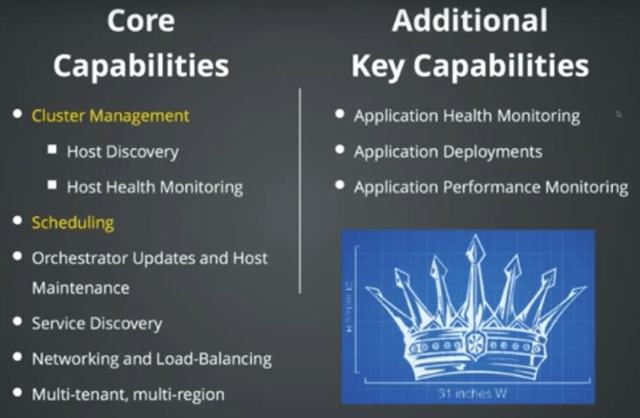
He then dove deeper into the four solutions. Below are summaries (the full talk is chalked full of information and is online here):
Nomad
- Designed for both long-lived and short-lived batch processing workloads
- Cluster manager with declarative job specifications
- Ensures constraints are satisfied and resource utilization is optimized by efficient task packing
- Supports all major OSs and workloads
- Written in Go and with a Unix philosophy
- Host discovery: Gossip protocol - Serf is used; servers advertise full set of Nomad servers to clients; creating federated clusters is simple
- Service discovery: Integrates with Consul
- Scheduling: two distinct phases - feasibility checking and ranking; optimistically concurrent; three scheduler types when creating jobs
- Uses task drivers to execute a task and provide resource isolation, but it does not support pluggable task drivers
- Built for managing multiple clusters/cluster federation
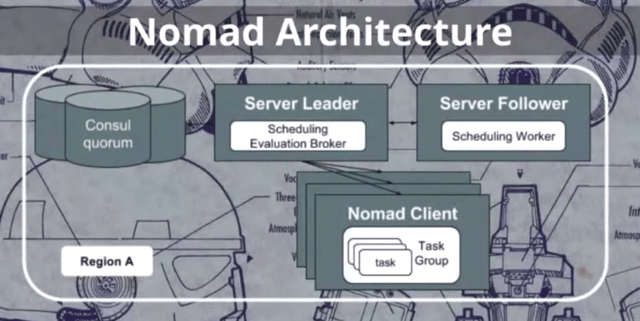
Docker Swarm 1.12
- Simple and easy to setup
- Architecture is not as complex as Kubernetes and Mesos
- Written in Go - lightweight, modular, and extensible
- Strong community support
- Host discovery: used in the formation of clusters by the Manager to discover Nodes (hosts); pull model - worker checks-in with the Manager
- Service discovery: Embedded DNS and round robin load-balancing
- Scheduler is pluggable and is a combination of strategies and filters/constraints
- Ability to remove “batteries”
- Rolling updates are supported
- Managers may be deployed in a highly-available configuration, but does not support multiple failure isolation regions or federation
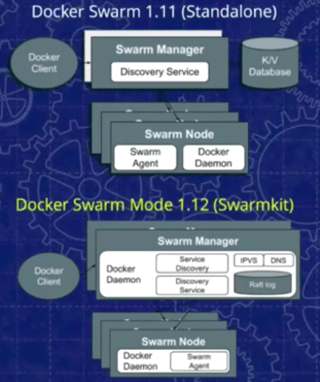
Kubernetes
- An opinionated framework for building distributed systems
- Written in Go and is lightweight, modular, and extensible
- Led by Google, Red Hat, and others
- Young - about two-years-old
- Robust documentation and community
- Scheduling is handled by kube-scheduler
- Pluggable architecture and an extensible platform
- Choice of: database for service discovery or network driver and container runtime
- Supports rolling back deployments, automating deployments and rolling updating applications
- Inherent load balancing
- Uses Pods, an atomic unit of scheduling. Each pod has its own IP address, no NAT required, and intra-pod communication via localhost
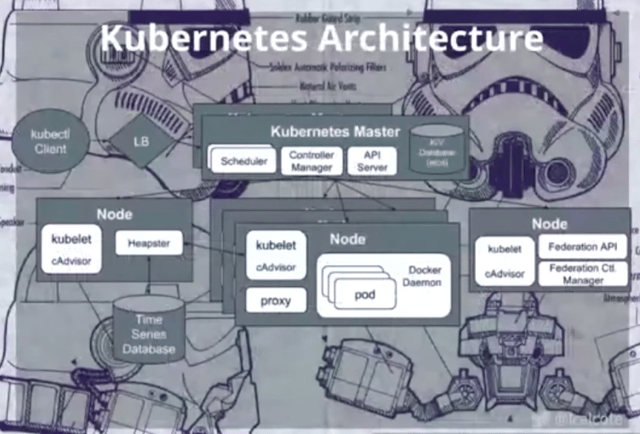
Mesos-Marathon
- Mesos is a distributed systems kernel
- Mesos has been around the longest (since 2009)
- Mesos is written in C++
- Marathon is a framework that runs on top of Mesos
- Mesos is used by Twitter, AirBnB, eBay, Apple, Cisco, and Yodle
- Marathon is used by Verizon and Samsung
- Mesos-DNS generates an SRV record for each Mesos task
- Marathon ensures that all dynamically assigned ports are unique
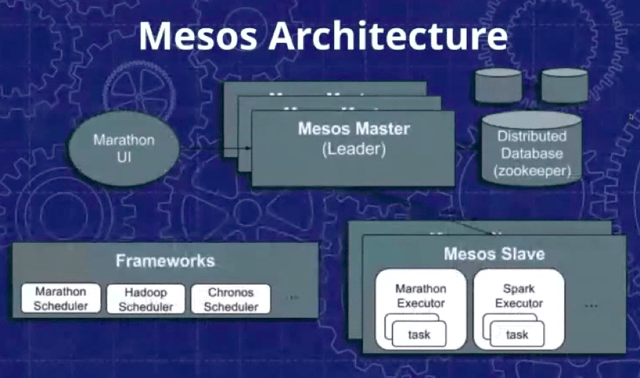
Wrapping up, Lee provided the following overview comparing the different container orchestration solutions.
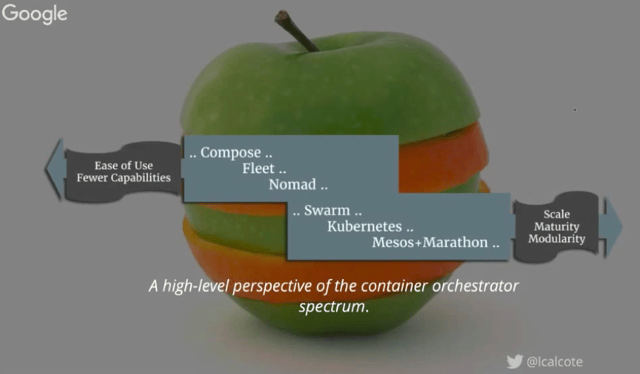
Lee packed a tremendous amount of information into his talk. If you use containers, his talk is worth your time and is available online here. If you missed any of the other 30-minute long presentations from All Day DevOps, they are easy to find and available free-of-charge here. Finally, be sure to register you and the rest of your team for the 2017 All Day DevOps conference here. This year’s event will offer 96 practitioner-led sessions (no vendor pitches allowed). It’s all free and online on October 24th.



.png?width=610&name=J1_ModernCybersecurityBook_Promo%201200x628%20v2@2x%20(1).png)



